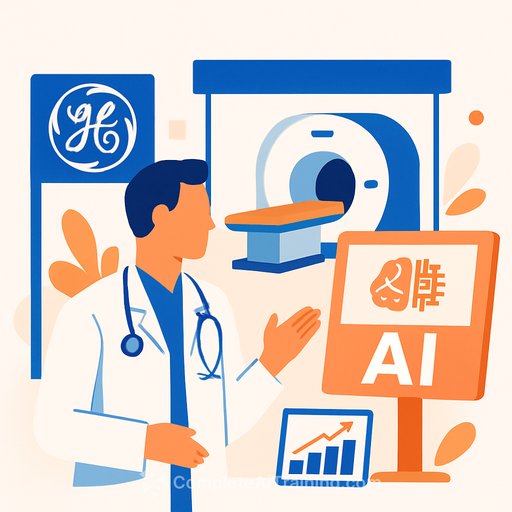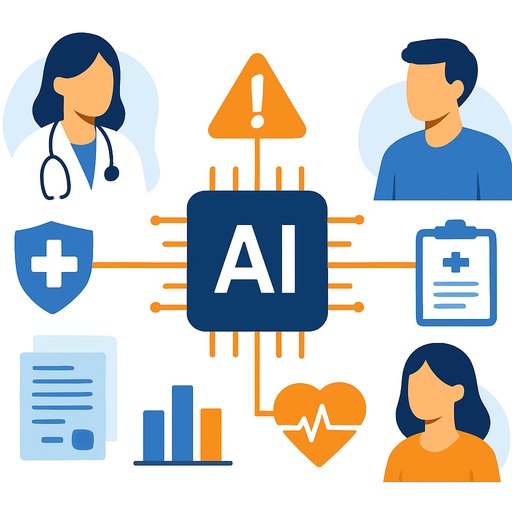A fresh look at GE HealthCare Technologies (NasdaqGS: GEHC) after its AI launch at ASTRO 2025
GE HealthCare Technologies drew attention at the 2025 ASTRO Annual Meeting with new AI-backed software for radiation therapy. For clinical leaders, the pitch is simple: faster planning, more consistent workflows, and tighter integration across imaging and oncology systems. For operators, it points to higher throughput and steadier service revenue from software.
What this could mean for your department
- Shorter planning cycles and more consistent contouring could reduce bottlenecks in radiation therapy.
- AI-supported adaptive workflows promise tighter QA, fewer re-scans, and clearer handoffs between imaging and treatment.
- Stronger interoperability with EMR/PACS and oncology information systems can cut manual steps and reduce error risk.
- Software subscriptions and service contracts may shift budgets from one-off capex to predictable opex.
Valuation context (useful for vendor risk and long-term support)
Recent close: $76.56. Consensus fair value: about $88, suggesting roughly 13% undervalued on that view. One-year total shareholder return is slightly negative, and the dividend was reaffirmed.
This is not financial advice. For hospital teams, the takeaway is vendor durability: product roadmaps, service coverage, and pricing discipline tend to track with financial health.
Growth drivers to watch
- Radiopharmaceuticals: New tracers can expand addressable procedures and drive equipment utilization.
- Total Body PET: Higher sensitivity and faster scans support throughput and complex cases.
- Photon Counting CT: Improved spectral detail may aid oncology staging and therapy planning.
- Recurring digital revenue: Advanced visualization, AI licenses, and service bundles can stabilize margins and fund updates.
Key risks on the horizon
- Tariffs and supply costs: Pricing on high-end systems and parts can shift quickly.
- Competitive pressure: Imaging majors and oncology platform vendors are pushing similar AI features.
- Integration gaps: Workflow friction appears when AI tools do not cleanly connect to your TPS, OIS, and EMR.
- Regulatory and reimbursement: Policy changes can affect adoption, billing, and ROI timelines.
Signals to track over the next 6-12 months
- Regulatory clearances and indications for Photon Counting CT and new PET workflows.
- Install base growth for Total Body PET and early readouts on case throughput.
- Peer-reviewed evidence on accuracy, time savings, and outcomes for AI-assisted radiation therapy.
- Interoperability milestones with major EHRs, PACS, and oncology information systems.
- Mix shift toward software and service ARR, and margin trends tied to that shift.
- Tariff headlines and any pricing changes on flagship systems or service plans.
Practical checklist before you pilot
- Integration proof: Verify DICOM RT, HL7/FHIR, and API support with your current stack.
- Workflow KPIs: Define targets for planning time, re-plans, and patient throughput before go-live.
- Clinical validation: Request site references, test datasets, and bias/performance reports on your case mix.
- Cybersecurity and privacy: Confirm encryption, access controls, audit trails, and data residency.
- Total cost of ownership: Price the full bundle-licenses, compute, storage, upgrades, service, and training.
- Change management: Schedule training, proctoring, and QA checkpoints for the first 90 days.
Bottom line
If GE HealthCare delivers on its pipeline while growing recurring digital revenue, clinicians could see steadier product updates and support. For healthcare teams, the practical upside is faster planning, stronger consistency, and clearer economics-provided integration and validation meet your standards.
To follow broader guidance on radiation oncology, see the ASTRO resources page here. For regulatory context on AI in clinical software, the FDA's Digital Health resources are a useful reference here.
About GE HealthCare Technologies (GEHC)
GE HealthCare develops, manufactures, and markets imaging systems, monitoring equipment, and complementary digital solutions used in diagnosis, treatment, and patient monitoring across the United States, Canada, and international markets.
This article is general commentary based on publicly available information and analyst estimates. It is not investment advice and may not reflect the latest price-sensitive announcements.
Upskill your team on practical AI
If your organization is building AI capability for imaging, oncology, or operations, explore curated programs and certifications: AI courses by job and latest AI courses.
Your membership also unlocks:






